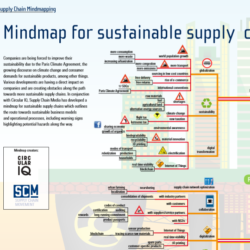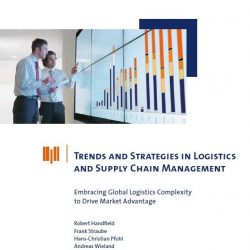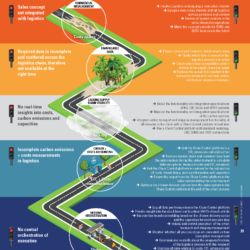Mindmap for sustainable supply chains

Companies are being forced to improve their sustainability due to the Paris Climate Agreement, the growing discourse on climate change and consumer demands for sustainable products, among other things. Various developments are having a direct impact on companies and are creating obstacles along the path towards more sustainable supply chains. In conjunction with Circular IQ, Supply Chain Media has developed a mindmap for sustainable supply chains which outlines the route towards sustainable business models and operational processes, including warning signs highlighting potential hazards along the way.
Diagnose
Supply chains are becoming ever-more complex due to the current megatrends of globalization, digital transformation and increasingly fragmented consumerism. Sourcing from far-flung low-cost countries increases the amount of transport needed and hence the carbon emissions. The rise of e-commerce – including the associated returns flows – is making it difficult to organize logistics efficiently, not least in terms of energy consumption. The growth of the world population is being further complicated by shortages of raw materials, fuel and agricultural land. The less eco-friendly aspects of purchasing, production and logistics are coming under the ever-closer scrutiny of governments and consumers. These global developments are forcing companies to analyse the impact in more detail: diagnose. The first step in the mindmap for sustainable supply chains.
Plan
More and more companies are looking to improve their sustainability while also boosting their performance. However, those two aims do not always go hand in hand within the various departments involved. The Sales department is seeing smaller orders being placed through a growing number of channels, putting margins under pressure. Marketing wants to avoid being accused of ‘greenwashing’, while also being required to reach and serve evermore customer segments. Finance is realizing that sustainability requires investment. Supply Chain has to cope with increasing complexity. The transition to a sustainable business model calls for mutual agreement and a robust plan.
Read more about the Sustainability Summit, organized by SAP Ariba in Barcelona, how to monitor and improve not only the first tier of suppliers, but also the second and third here.










